Energy, Society and Sustainability MSc – My Experience
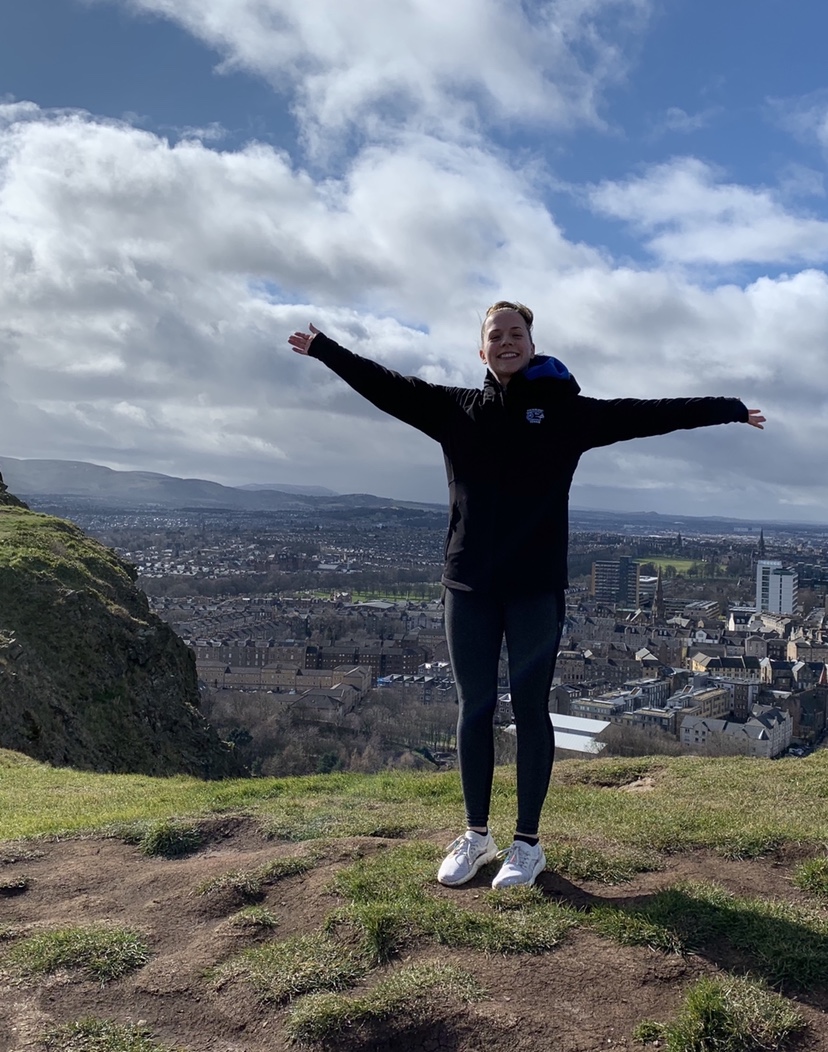
By Emma, MSc Energy, Society and Sustainability
As my time in the Energy, Society and Sustainability MSc is coming to an end, I thought I would share some information, experiences and reflections and a few tips I have for incoming students and for those who are simply curious and would like to know more about the programme.
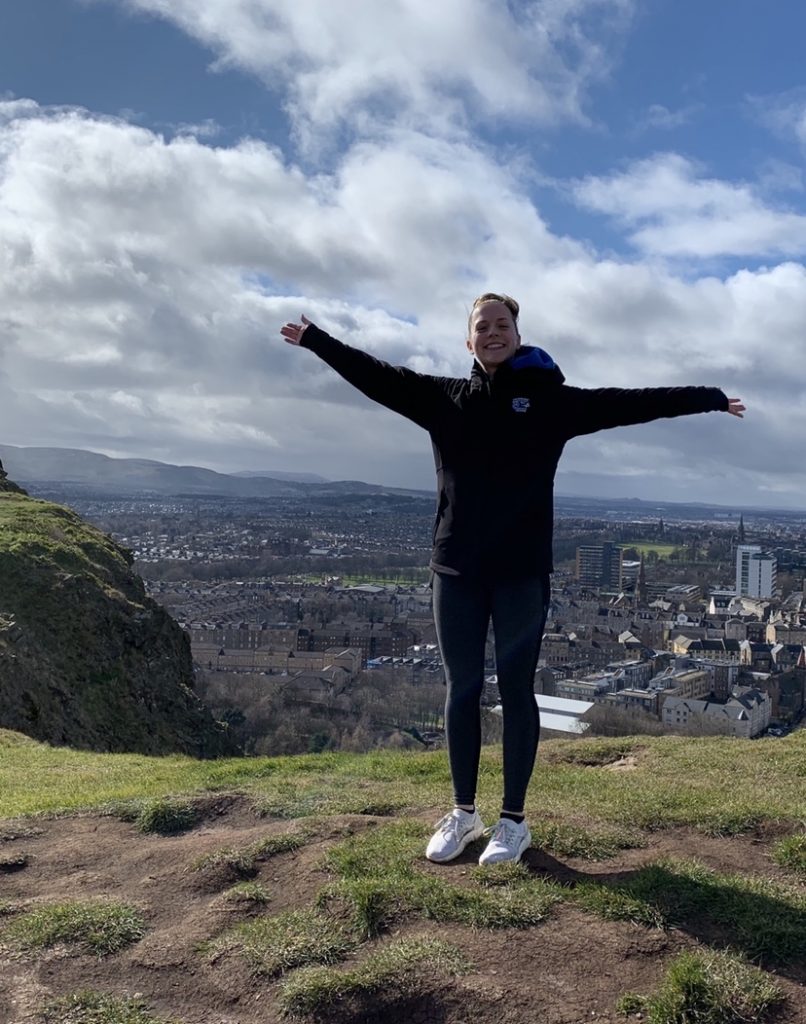
On top of Salisbury Crags with Main Campus in the background (bottom right)
Information
I will begin with some general information about my experience in the programme and about the programme itself. In the academic year 2019/20 the ESS programme consisted of six courses – three in the autumn term and three in the spring term. Two courses each term are compulsory, while the third is optional. One of the compulsory courses for the autumn term included Energy and Society I: Key Themes and Issues, which dealt with the connection between energy systems and society both globally and locally. One of the really interesting assignments we had was a group collaboration on how to reduce individual and domestic energy use, where we analysed this through a “social” lens. It was fascinating to see the findings each group had at the end of the project during presentations. The other compulsory course was Energy in the Global South, dealing with multifaceted and complex energy issues in different locations in the Global South and how they can be addressed/solved. An assignment in this course was to write a case study on how fuel/electricity relates to social and economic change in a specific location in the Global South. In the spring term, one of the compulsory courses was Energy and Society II: Methods and Applications, which was a 6 week course followed by a week’s field trip to the Orkney Islands. Six weeks of lectures and group collaboration prior to the field trip prepared us for our research on the Islands (which ended up being a well-run virtual field trip due to covid-19, which you can read more about in one of my previous blog posts). The other compulsory course was Energy Policy and Politics where we learned about social and policy issues in energy and how to analyse these through an interdisciplinary perspective, including the social, technological and scientific perspectives. One of our assignments included group work where each group was allocated a country to gain an understanding of the country’s wider context and energy challenges, research their market structures and policies, and develop a future scenario including different proposals and outlines. The courses were taught with a mix of lecture and seminar time, where we’d learn about the week’s topic and then discuss the readings and the lecture in smaller discussion groups which was really helpful, fun and informative. The two optional courses I chose were Energy and Environmental Economics (10 credits), Introduction to Risk, Regulation and Governance (10 credits), and Environmental Risk: Politics, Ethics, and Communication (20 credits). The latter course was offered for the first time this year and I would particularly recommend it as the course work and lectures were engaging, fun, interesting and thought-provoking.*
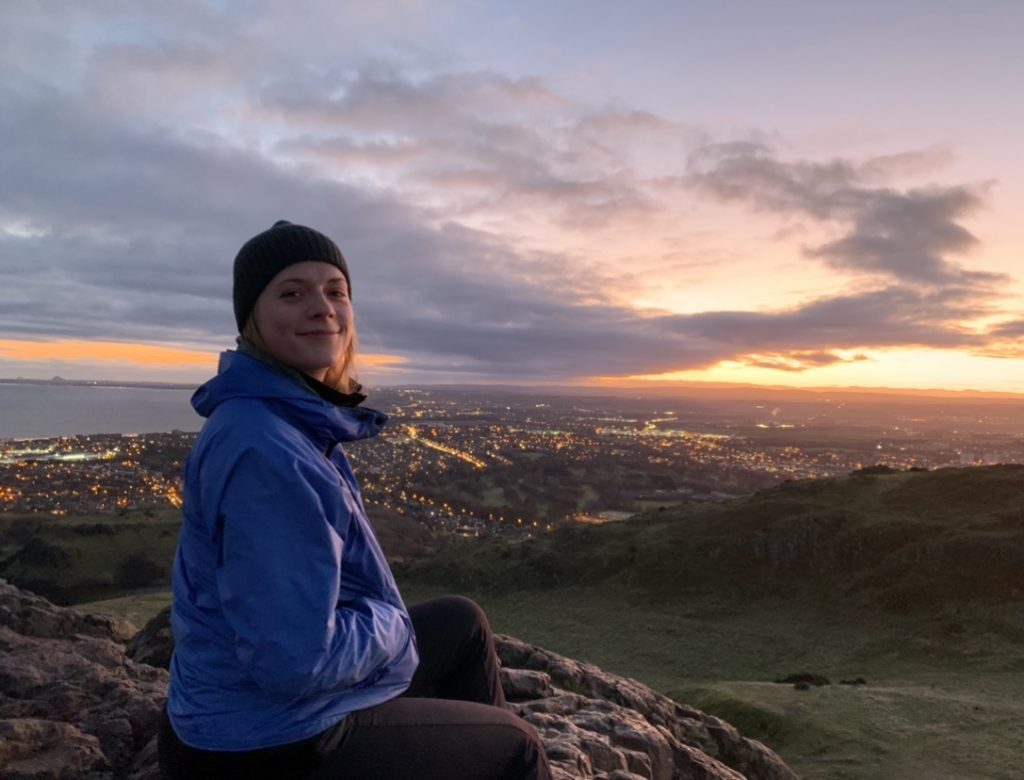
On top pf Arthurs Seat – seeing energy in action
Experiences
ESS, like other PG programmes, offered a lot of time outside class to learn. Each course was held once a week, so some days I would not even have any lectures and could spend the day reading for the next lecture, doing coursework, researching for assignments, or exploring more of Edinburgh. Except for set lecture times, my schedule was flexible in terms of how much time I spent on coursework, when I did it, and how I chose to prioritise. It definitely takes discipline and drive to do the work on some days when the weather is nice and you want to explore, but each course was really interesting and fun so it wasn’t hard to make time for uni work. Being able to live in a place that is bustling yet not overwhelming, urban yet close to nature and full of lovely people, made going on small excursions – both in Edinburgh but also outside the city – a treat. With main campus close to Waverley Station, it was easy to hop on the train and visit other places in Scotland, such as St Andrews. Stops for regional buses in the centre also made it easy to explore places such as the Pentlands just outside Edinburgh.
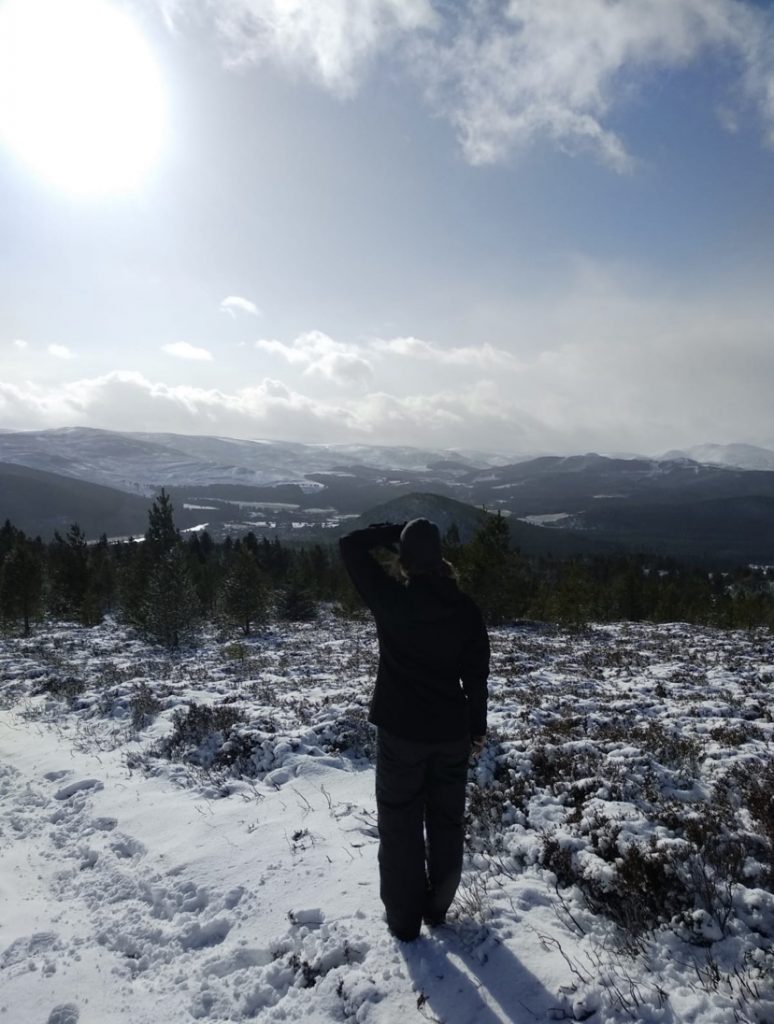
Trip to Ballater – Cairngorms National Park
Reflections
My first tip would be to take the opportunity to learn as much as possible! Make good use of the resources offered – be it the library, student careers, guest lectures, events, societies, sports and more. The School and the University as a whole have so much to offer, and taking part in many diverse opportunities will only enrich your experience and introduce you to lifelong friends. I played with the women’s tennis team on occasion, learned from interesting guest lecturers, met new friends at events, and joined societies, which all brought some of the best memories from my time in Edinburgh. Along with being a part of an amazing and fun cohort in ESS, I was also able to meet students in other Geosciences programmes at different events, such as the autumn Ceilidh dance, or through group work in courses/modules. I found that my cohort and students from other courses were all very eager to learn, both from our professors but also from each other, which created a really fun, inspiring and impactful learning experience. There was a consistent atmosphere of curiosity, drive, teamwork and ambition which I really value, and which still inspires me even now as I’m writing my dissertation remotely. Having come from a background of Economics and Environmental Studies, I did not know much about energy systems and their connection to society. Now, having almost completed the programme, I must say that it has been one of the most enriching experiences. I have been able to expand my thinking and knowledge, increase my drive and ambition to begin a career in this field, meet loads of lovely people and friends, and be able to call Edinburgh a home away from home. The ESS programme exceeded my expectations in terms of the knowledge I gained and the most engaging and encouraging professors I’ve had. My last tip for you, if you’re considering this programme, would be to go for it!
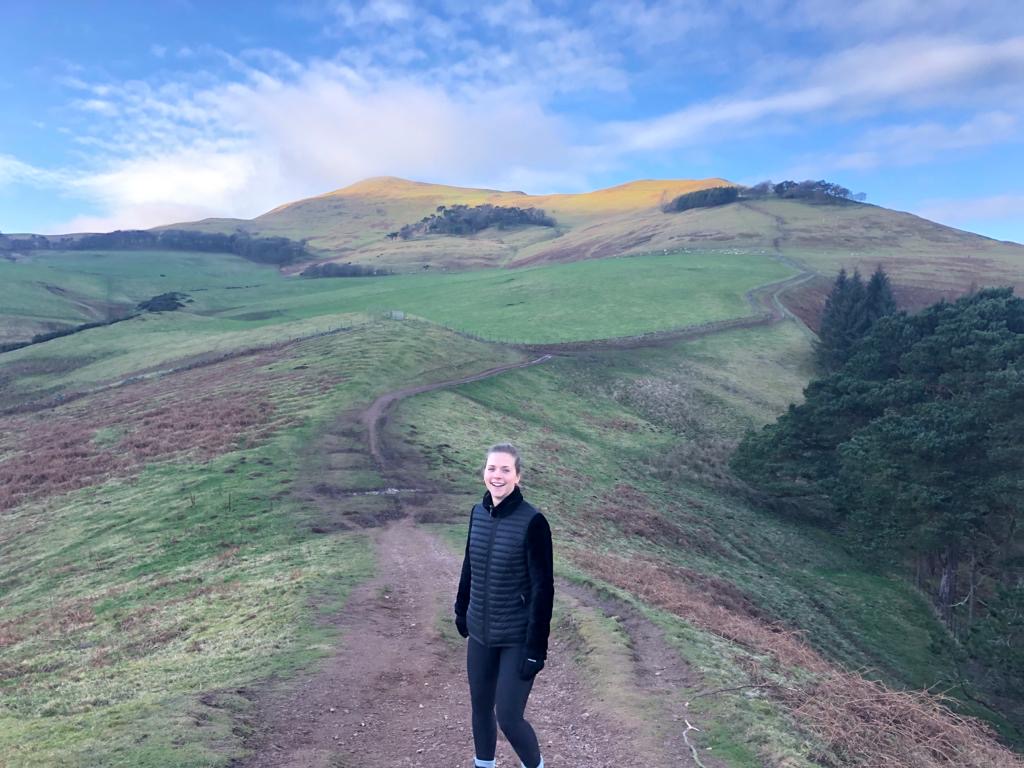
Happy in the Pentlands
*This may be subject to change for academic year 2020/21 and future academic years.
Follow us on Instagram or Twitter for more updates from our Geosciences students!




You are smashing Emma. Would be great to hear a progress update on your situation now.
Solar systems are defiantly becoming more popular year on year due to the massive benefits available to the user.
Have you got any tips on what sector would be best to focus on for 2023?
http://www.rcxenergy.co.uk